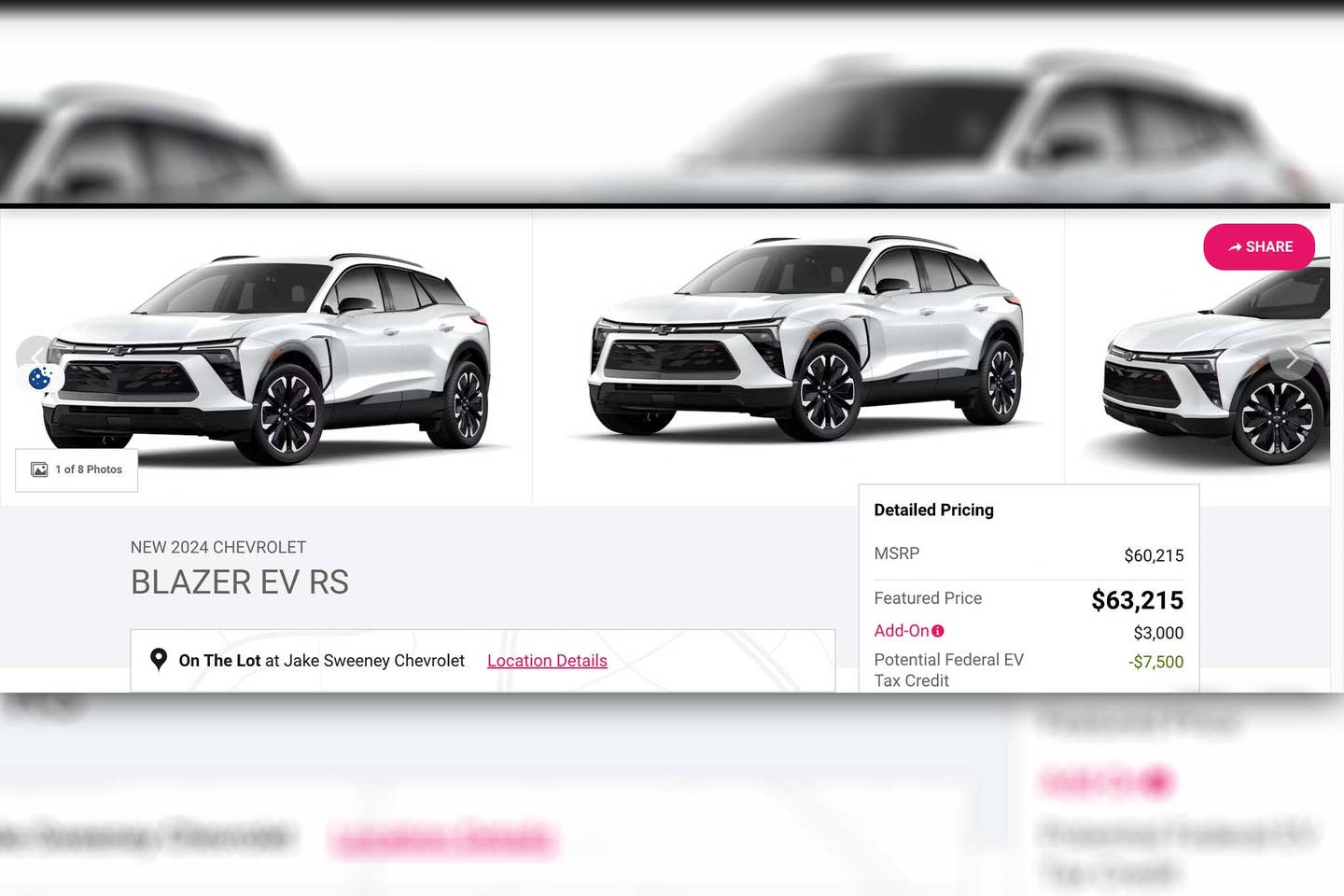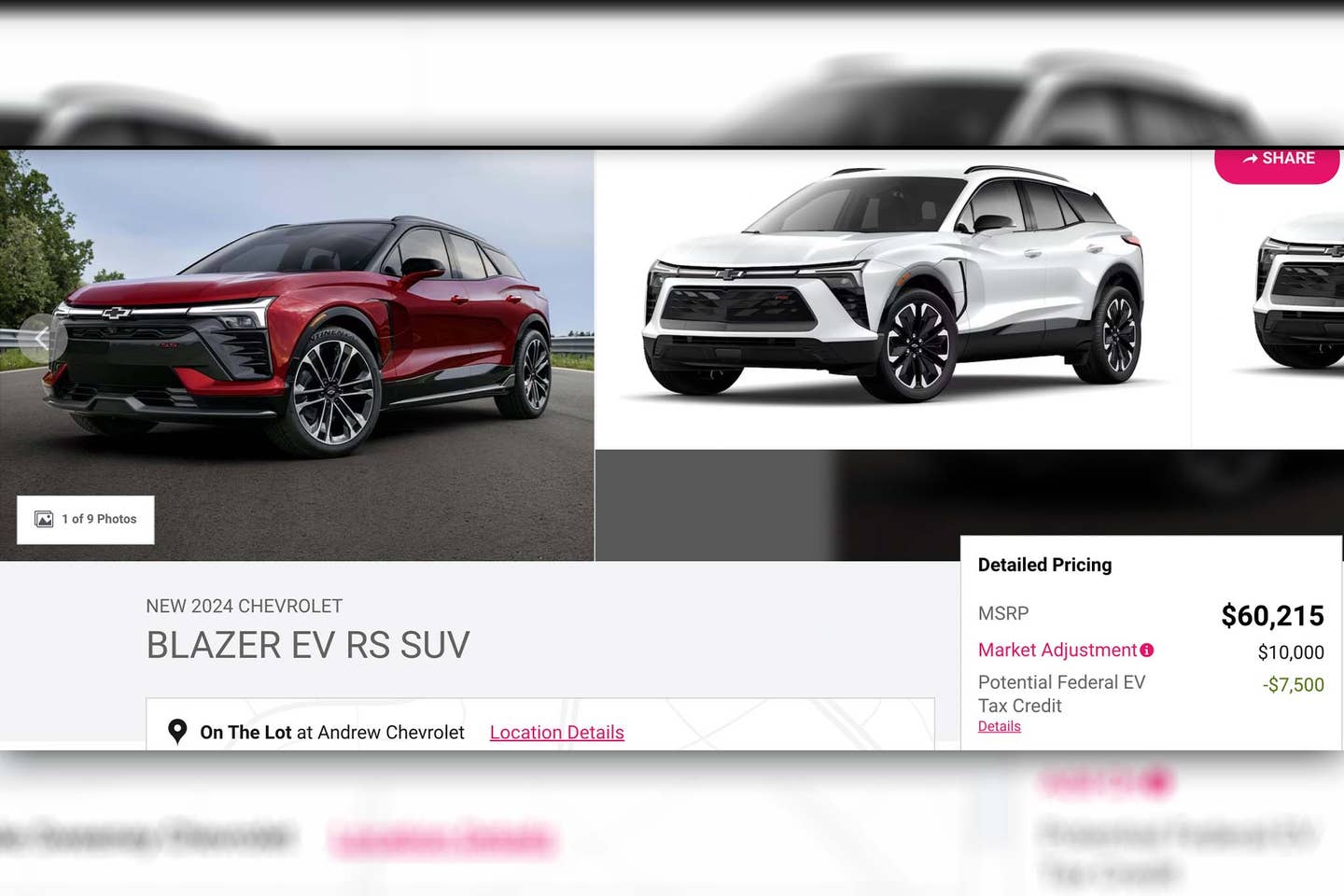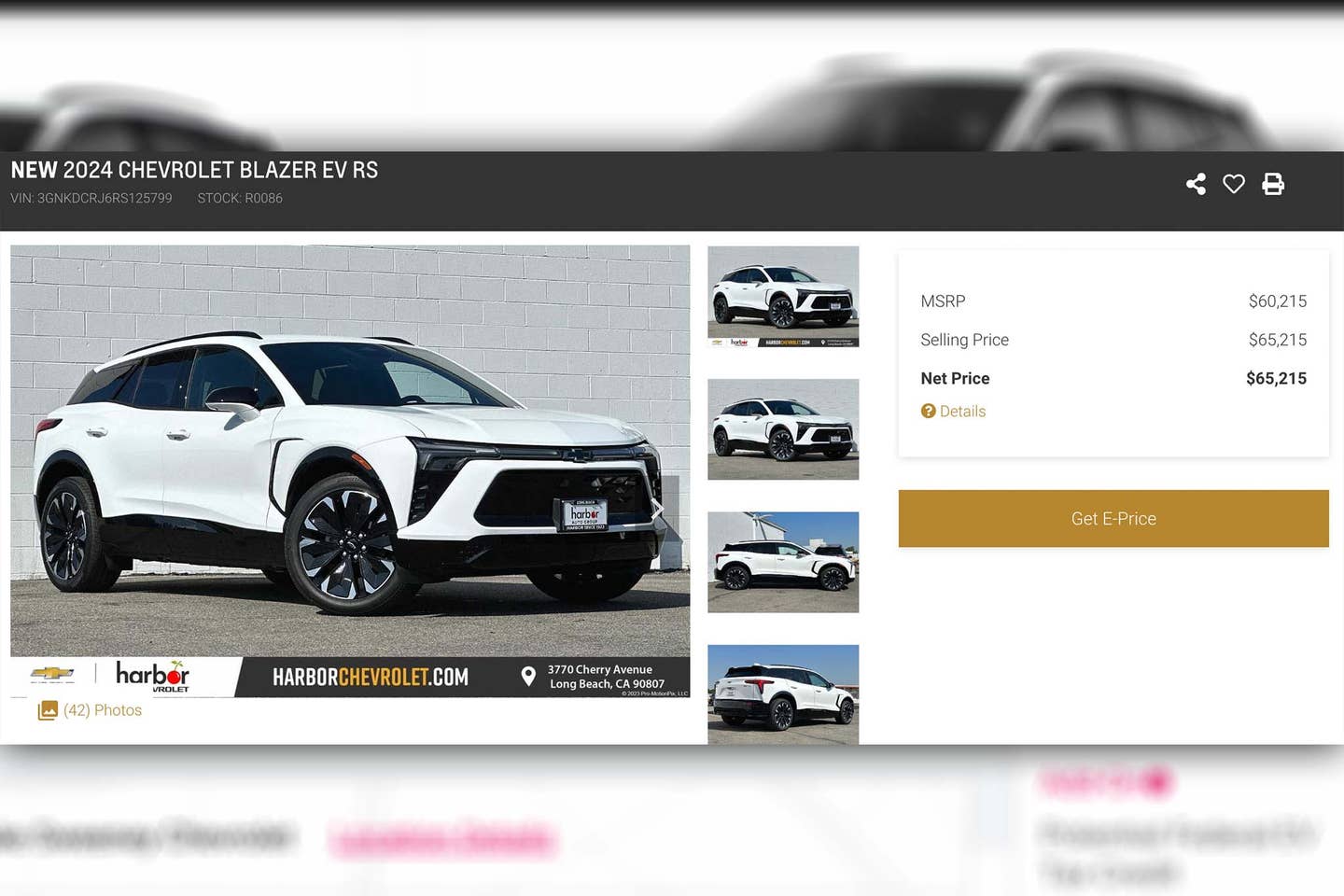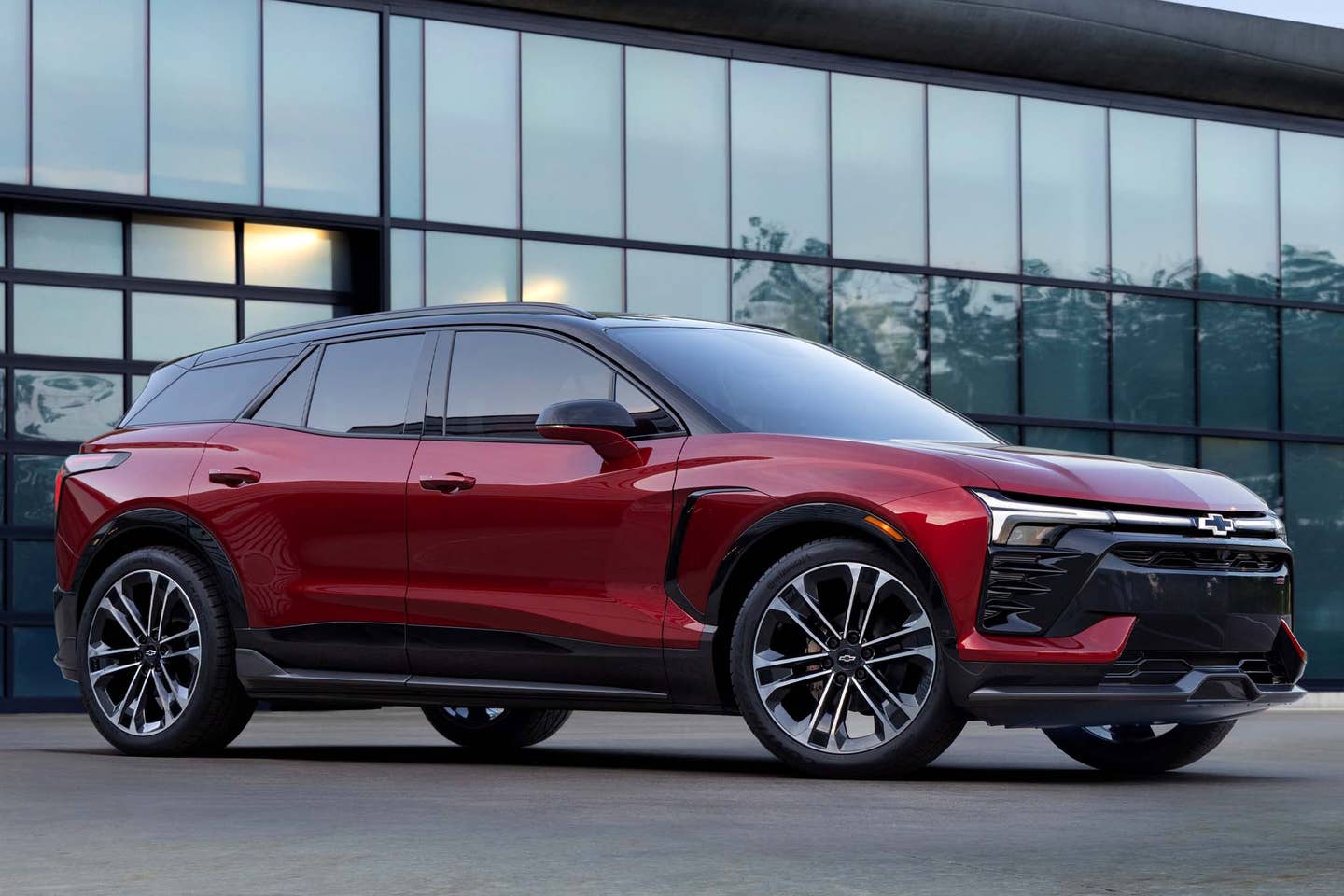If you happened to be glancing at General Motors’ Q3 sales figures over breakfast, you might have noticed an interesting small number next to the Blazer EV: 19. That represents the quantity produced by GM in the third quarter. While production has increased, there is still a limited supply, prompting dealers to implement widespread surcharges to increase their profit margins.
These markups are not as extreme as the inflated “market adjustments” seen with popular enthusiast cars. The Blazer EVs are not being priced astronomically high like electric Hummers, Nissan Z Nismos, or GR Corollas. Nevertheless, the price hikes are substantial and prevalent. Dealers nationwide are generally adding markups of around $5,000 to Blazer EVs, occasionally even reaching up to $10,000.




Given that GM is currently focusing on producing the more expensive RS trim, the availability of the less costly 1LT and 2LT models is scarce. This implies that nearly any Blazer EV one can acquire is likely to be priced similarly to a lower-tier Cadillac Lyriq. It is worth noting that many Chevy dealers do not solely operate a Cadillac dealership alongside them. Or do they?
These circumstances, in addition to other factors, are brewing a challenging situation for GM. Alongside other car manufacturers, the Detroit-based company is beginning to realize that the demand for electric vehicles, particularly in the realm of pickup trucks, is not as high as initially anticipated. Moreover, GM has encountered obstacles in launching most of its new electric vehicles, even without the UAW’s current strike, which could further exacerbate the supply shortage at any moment.

The overall situation appears quite chaotic. Although GM has the capacity to manufacture tens of thousands of Ultium-based EVs, it is currently constrained by various factors. Due to limited supply, dealers are applying surcharges, potentially dissatisfying consumers. When the company eventually manages to ramp up EV distribution to its dealers, it may face a decline in demand. The outlook seems grim.
Furthermore, the company has yet to introduce its new affordable EV models to the market. The current Bolt is on its way out, with a new generation lingering on the distant horizon. If the Equinox EV eventually launches at a base price of approximately $30,000 as promised, it would be quite a miracle. EVs developed with current technology, such as GM’s offerings, require competitive pricing to mitigate any potential reservations customers may have regarding electric vehicles. Issues like inadequate charging infrastructure, outdated plug technology in most EVs in a few years, and subpar performance in cold weather could deter buyers. However, if the forthcoming Bolt is priced at $25,000, it might stand a chance against these challenges.
Unfortunately, access to reasonably priced EVs may currently be out of reach due to dealers’ pricing strategies and GM’s production impediments.
Have a tip to share? Reach out to us via tips@thedrive.com
